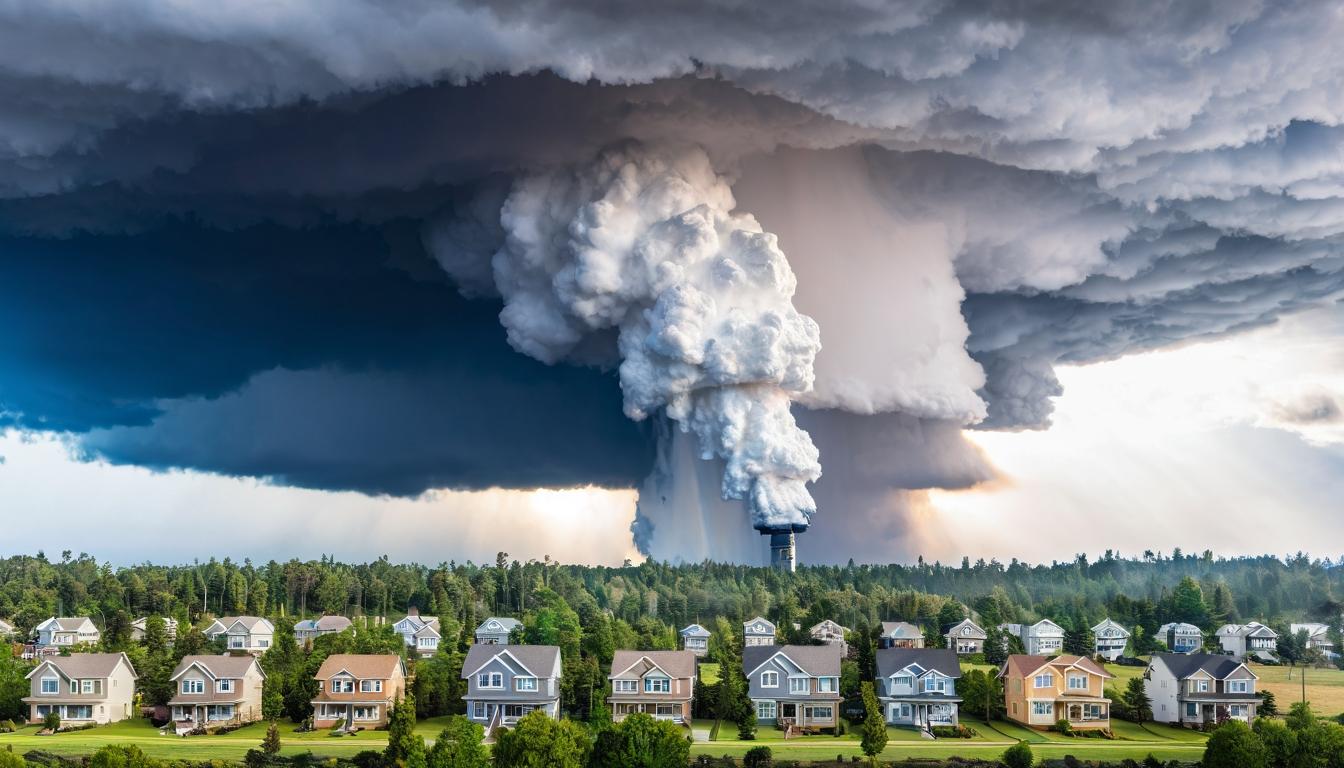The insurance industry, long known for its conservative pace and risk-averse nature, is standing at the precipice of the most dramatic transformation in its history. Two powerful forces—artificial intelligence and climate change—are colliding to create a perfect storm that will fundamentally alter how we protect our homes, businesses, and lives.
Across the country, insurance executives are waking up to a new reality. The old models no longer work. The actuarial tables that guided generations of underwriters are being rewritten by wildfires that burn hotter, hurricanes that strike more frequently, and floods that reach places once considered safe. Climate change isn't coming—it's here, and it's already costing the industry billions.
Meanwhile, in Silicon Valley and innovation hubs across the globe, tech companies are developing AI systems that can analyze risk with terrifying precision. These algorithms can process satellite imagery, weather patterns, construction data, and social media feeds to predict losses before they happen. The traditional 12-month policy cycle is becoming obsolete, replaced by dynamic pricing that changes with the weather.
The human impact of these changes is already being felt. Homeowners in California and Florida are seeing their premiums double or triple, while some are being dropped altogether. Small businesses along coastal areas are struggling to find affordable coverage. The very concept of insurability is being redefined, creating what experts call 'insurance deserts'—areas where coverage is either unavailable or unaffordable.
But it's not all doom and gloom. The same technology that's disrupting the industry is also creating opportunities for innovation. Parametric insurance, which pays out based on predetermined triggers rather than actual losses, is gaining traction. Imagine a policy that automatically pays farmers when rainfall drops below a certain level, or coastal businesses when wind speeds exceed a threshold. No claims process, no adjusters—just immediate relief.
The cyber insurance market is exploding as businesses recognize their vulnerability to digital threats. Ransomware attacks, data breaches, and system failures are creating a new category of risk that traditional policies never anticipated. Insurers are responding with specialized coverage that includes not just financial protection but also incident response teams and cybersecurity consultants.
Perhaps the most fascinating development is the emergence of insurance-technology partnerships. Major carriers are investing in or acquiring tech startups that offer everything from drone-based property inspections to blockchain-based smart contracts. The paper-based policy that took weeks to process is being replaced by digital agreements that can be activated with a click.
The regulatory landscape is scrambling to keep up. State insurance commissioners are holding emergency meetings to address affordability crises, while federal agencies are developing new frameworks for AI governance. The balance between innovation and consumer protection has never been more delicate.
What does this mean for the average person? Your insurance experience is about to become more personalized, more digital, and potentially more expensive if you live in high-risk areas. The annual renewal notice might be replaced by continuous monitoring and frequent premium adjustments. The way we think about risk protection is evolving from a transactional relationship to an ongoing partnership.
The insurance industry's transformation serves as a microcosm of broader societal changes. It reflects our struggle to adapt to climate reality, our embrace of technological solutions, and our ongoing negotiation between individual responsibility and collective security. How this plays out will affect every homeowner, every business owner, and ultimately, every person who depends on the safety net that insurance provides.
The revolution isn't coming—it's already underway. And like all revolutions, it will create winners and losers, opportunities and challenges. The only certainty is that the insurance landscape of tomorrow will look nothing like the one we know today.
The silent revolution: how AI and climate change are reshaping insurance forever

